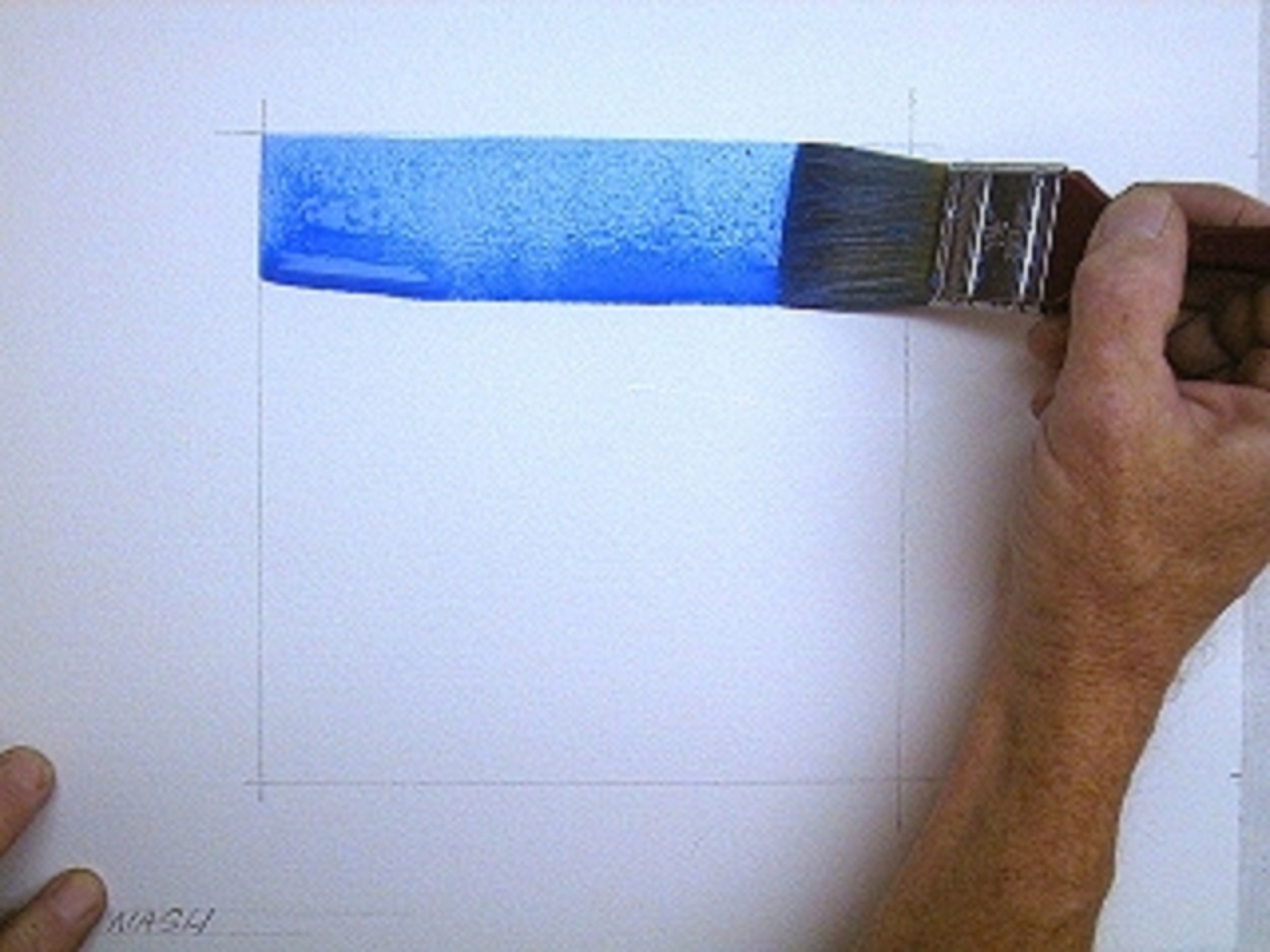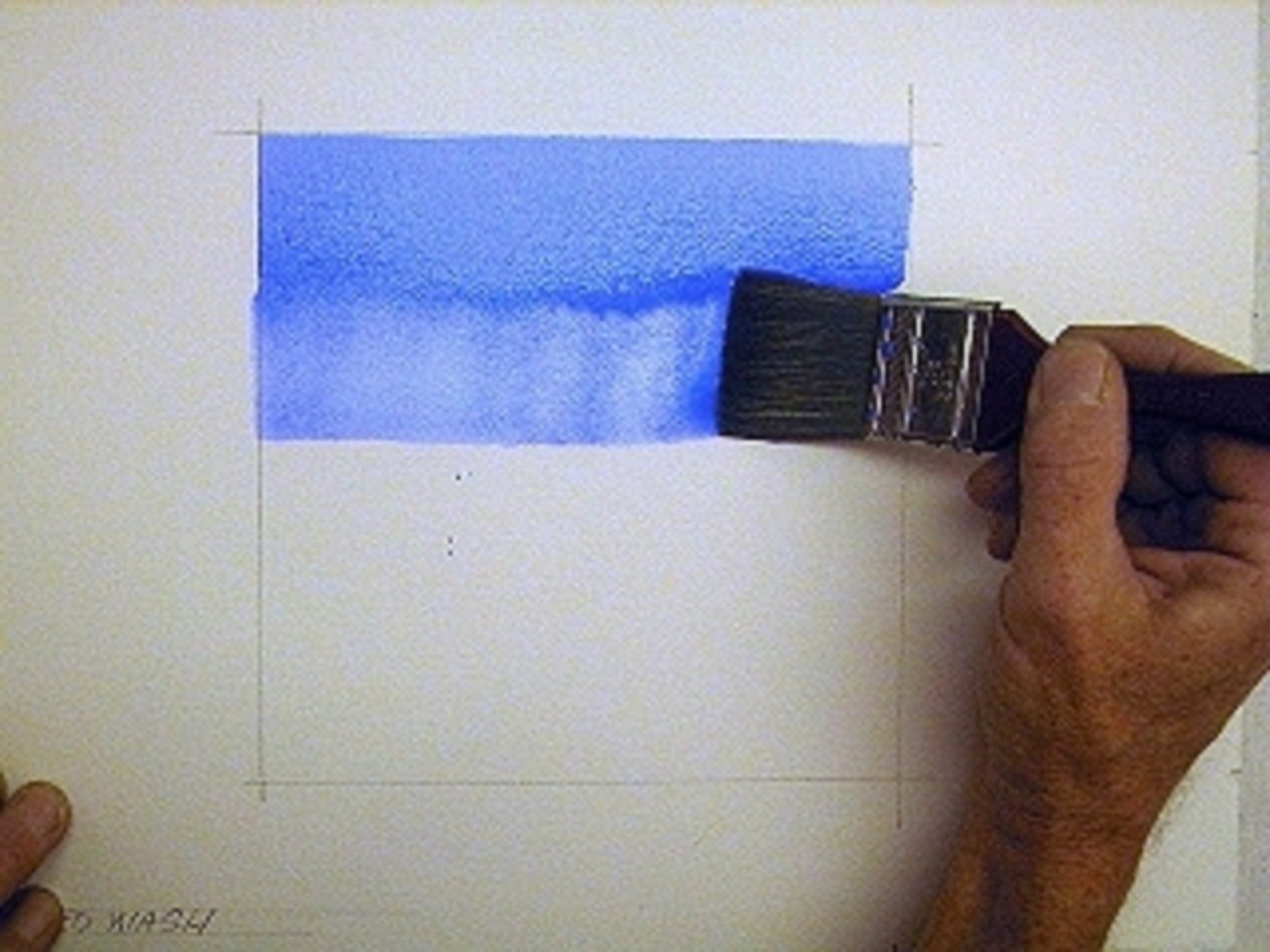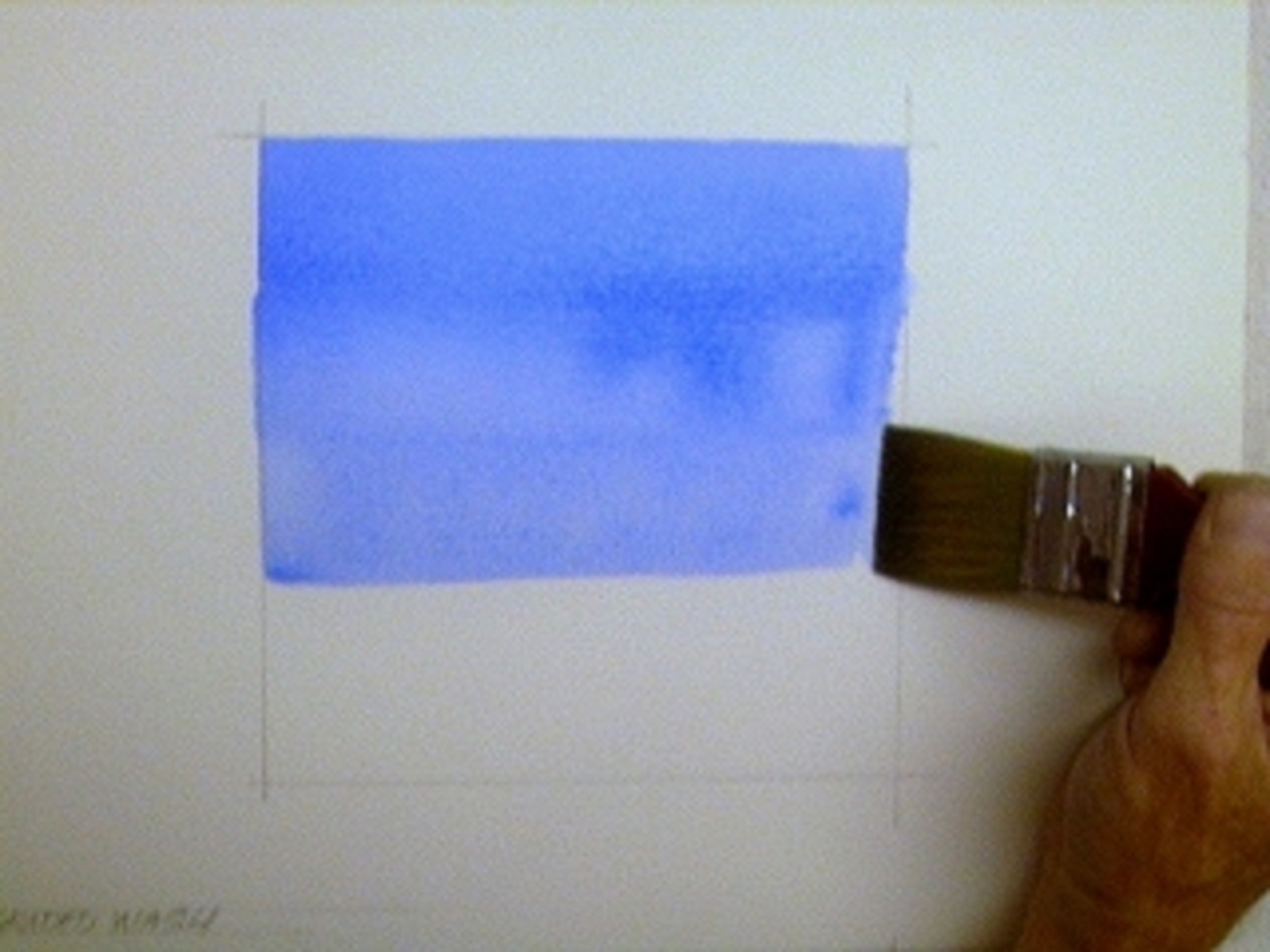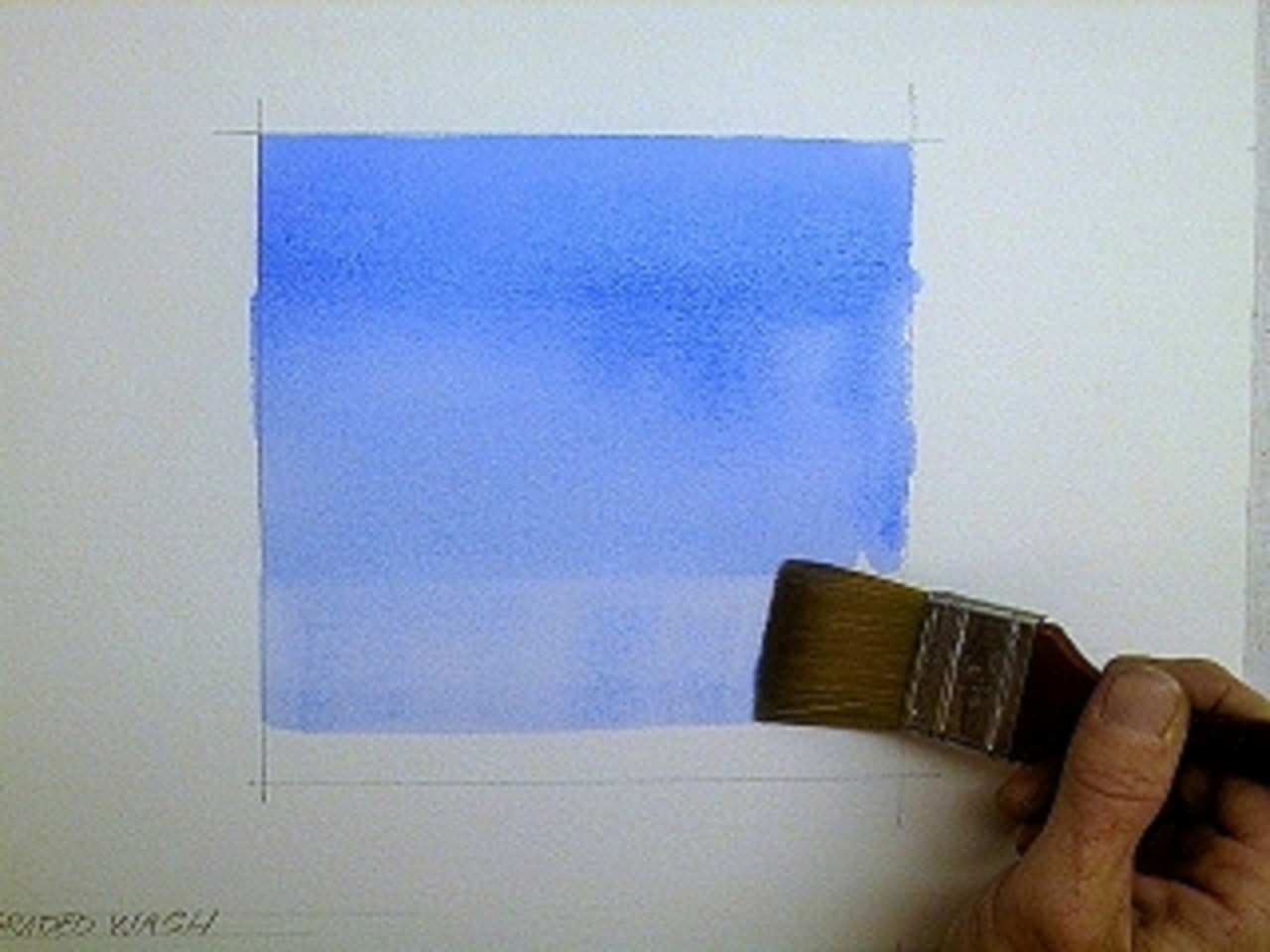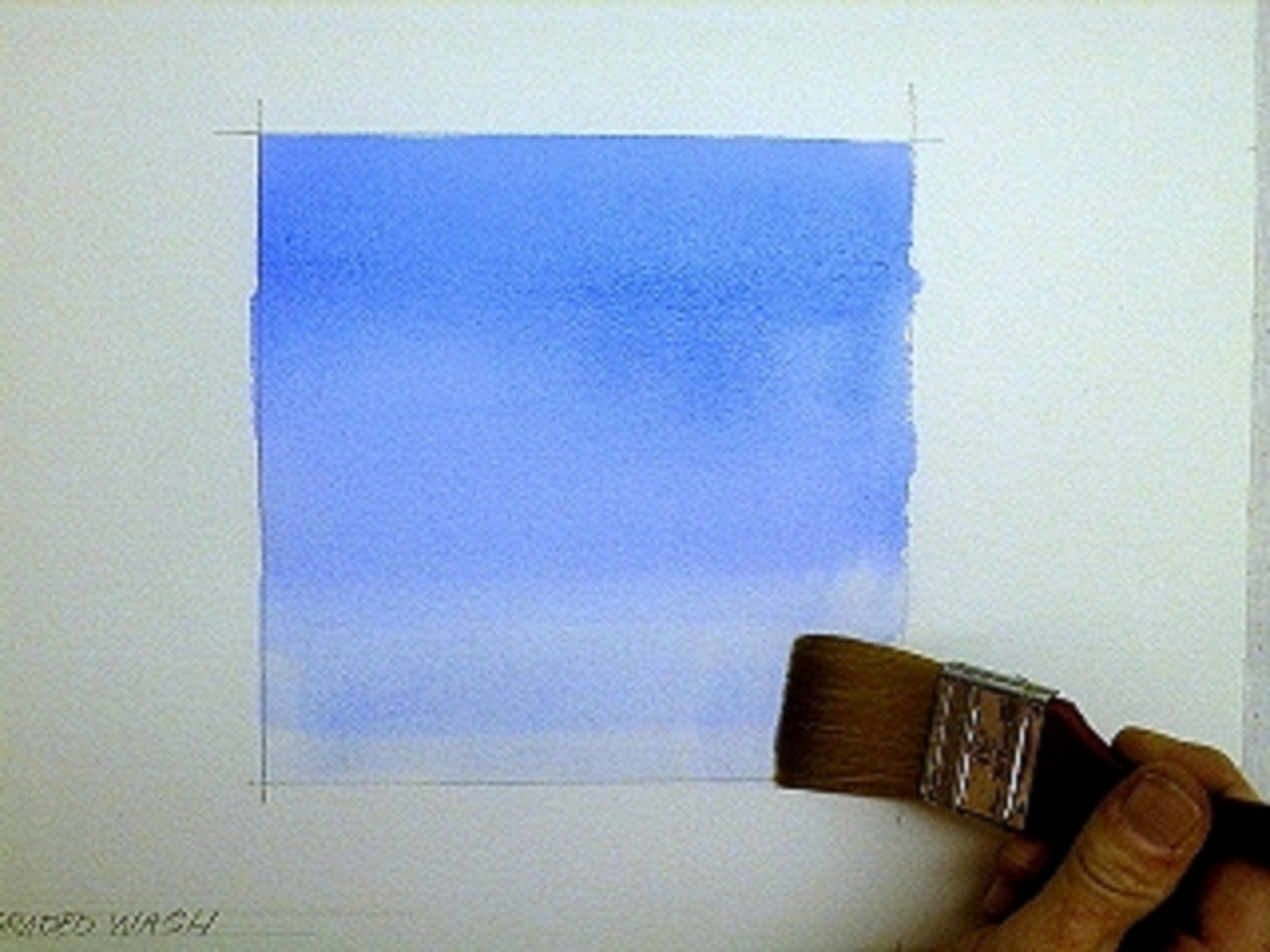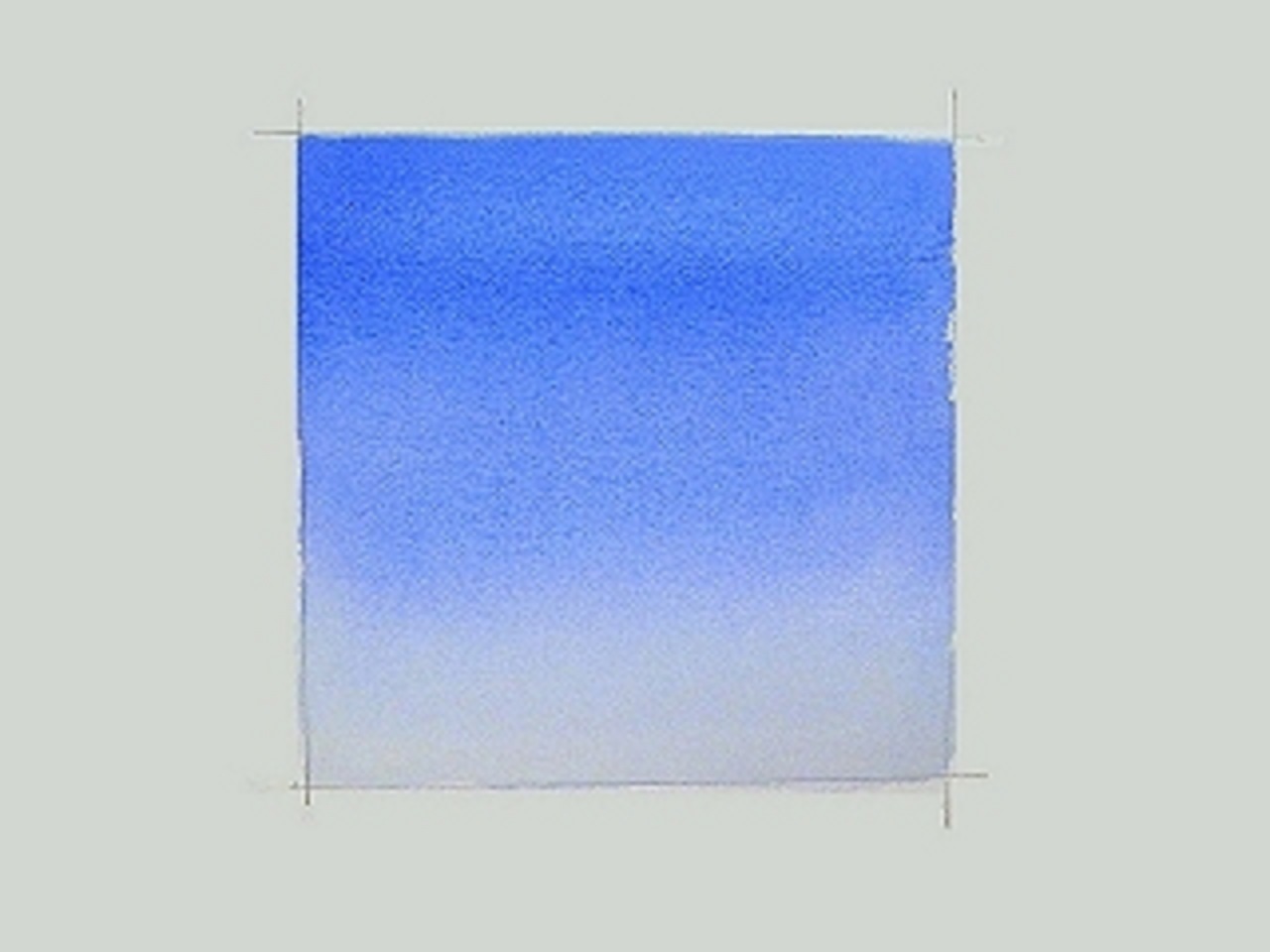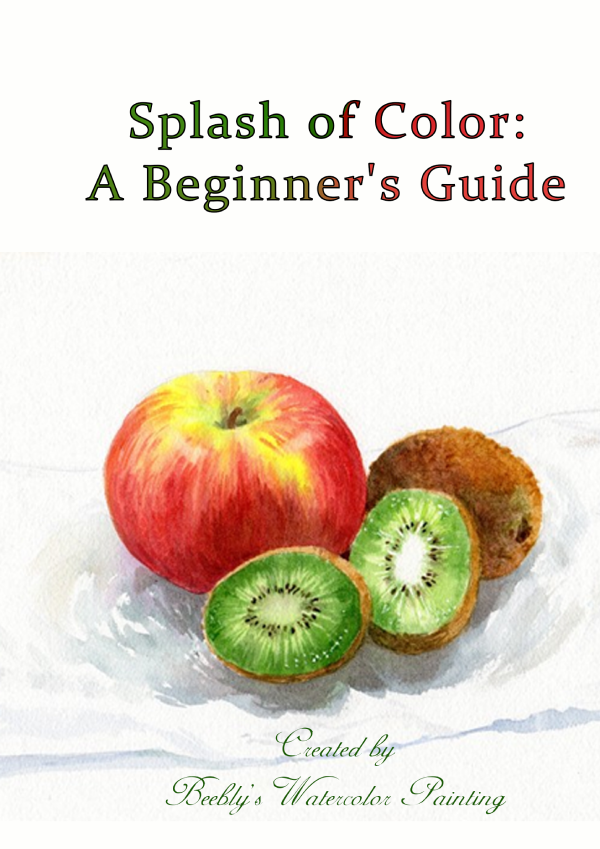Preparing to wash
Here's a simple way to practice (and master) this watercolor technique. Draw a square or rectangle on your paper. Select a darker hue for your wash (it's easier to see) and mix a liberal amount of medium intensity (30-50% value) paint your brush. In a clean part of your palette mix another puddle at about half the intensity of the original mixture. MATERIALS USED: I'm using a 1 ½" (381mm) Winsor & Newton Series 965 flat wash brush and Winsor & Newton Cobalt Blue watercolor paint for this lesson. The paper is Arches #140 cold press. Charge your brush with paint from the darker mix, and starting in the upper left corner touch your brush to the paper and gently pull a straight line of paint to the upper right corner.
Light
Dab your brush on a sponge or paper towel and refill your brush with the lighter mixture. Start your second stroke overlapping the bottom of the previous stroke. Notice that the left side of the stroke has already flowed together with the top stroke. Let gravity do it's work.
Lighter
Rinse your brush and blot it on a towel or damp sponge, refill from the lighter mixture. Make your next overlapping stroke.
Lightest
Rinse clean and dip your wet brush into the lighter mixture, further lightening the wash. Lay your next overlapping stroke. TIP 1: If your stroke doesn't flow evenly or breaks up, charge your brush and repeat the stroke IMMEDIATELY.
A clear finish
Rinse your brush well and using clear water start your last overlapping stroke. Squeeze the water out of your brush and pick up the bead of paint at the bottom of the wash.
All Done.
Ask the paint settles and flows, minor imperfections in tone will usually smooth themselves out before they dry. This example shows some graining in the final wash. Cobalt Blue is a coarser and heavier pigment that settles into the texture of the paper. TIP 2: Try practicing your graded washes with different colors and intensities. Each color has it's own physical properties that affect how they feel and flow in washes. TIP 3: Practice transitioning one color into another for interesting multi-color effects. Perfecting a graded wash may take a little more practice than a flat wash, but any time painting is time well spent.
